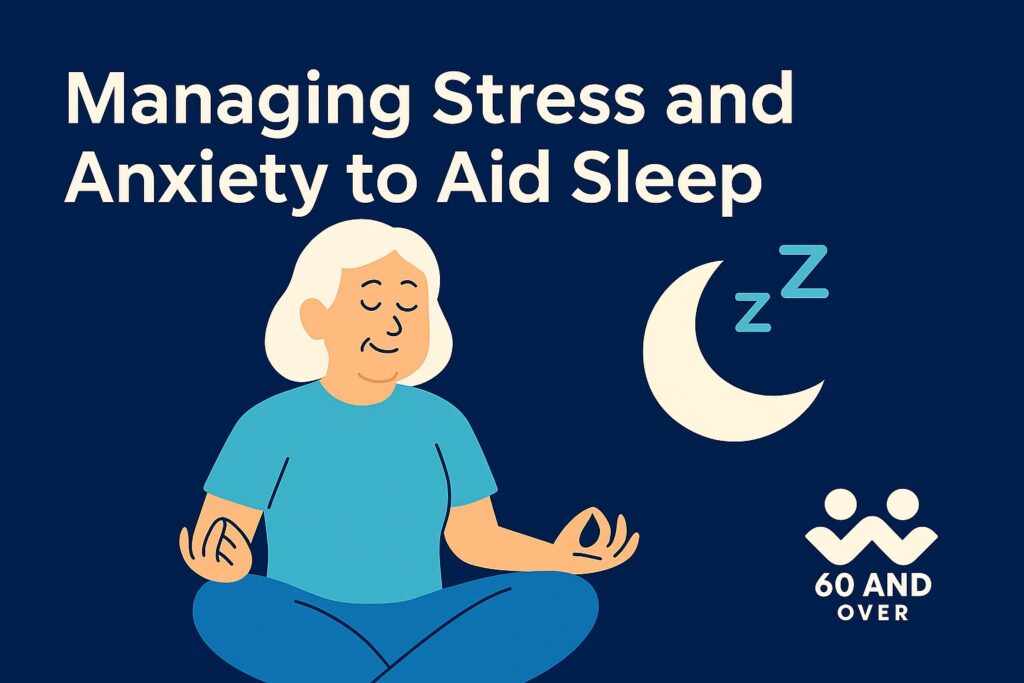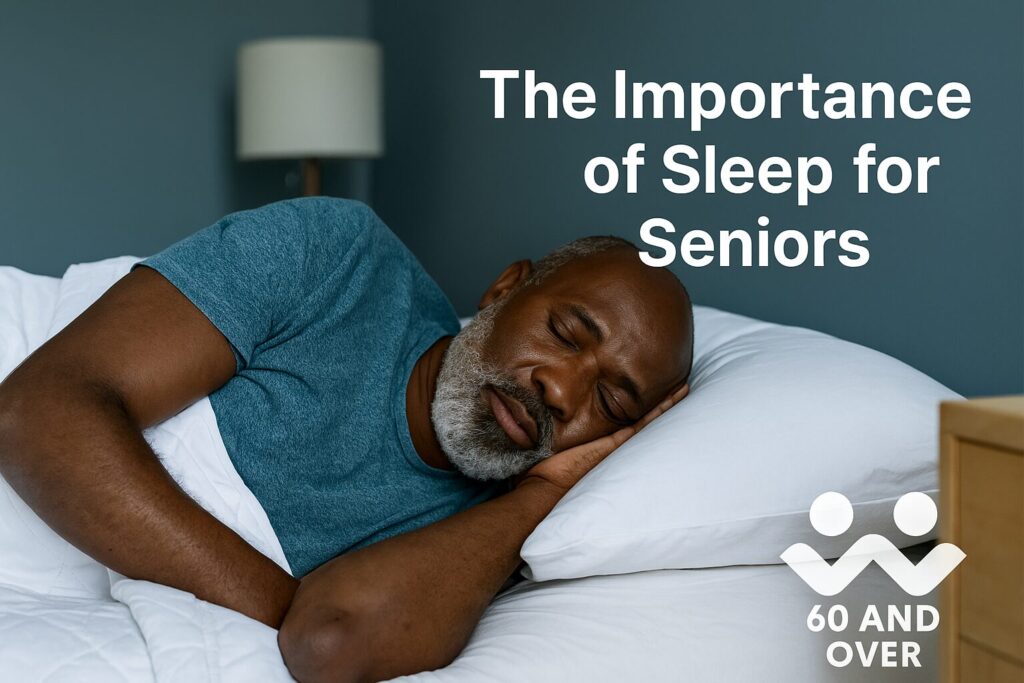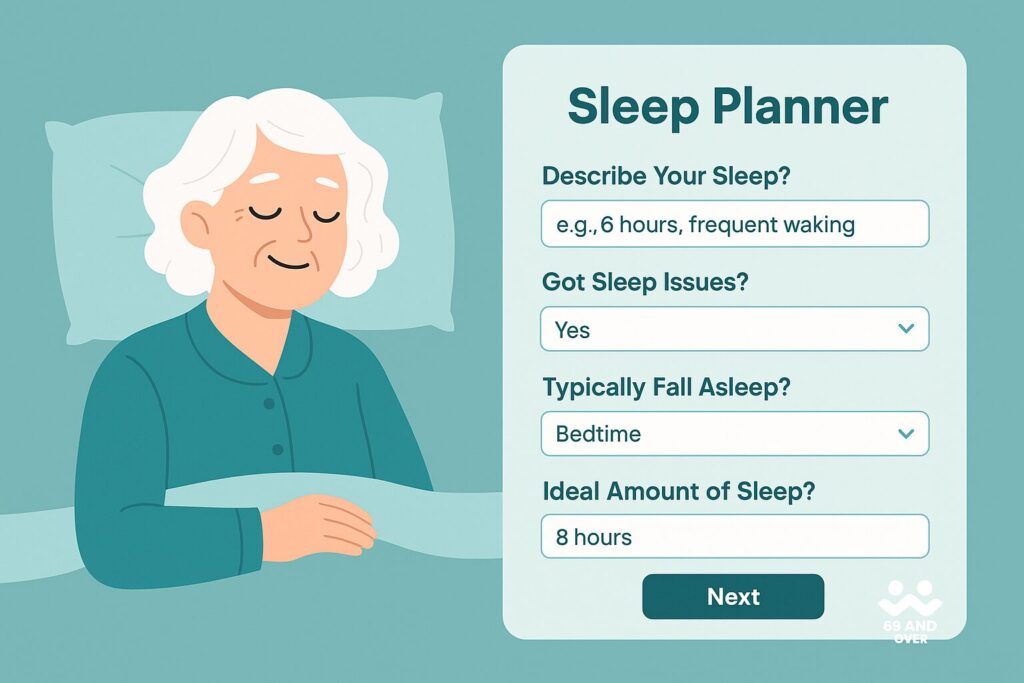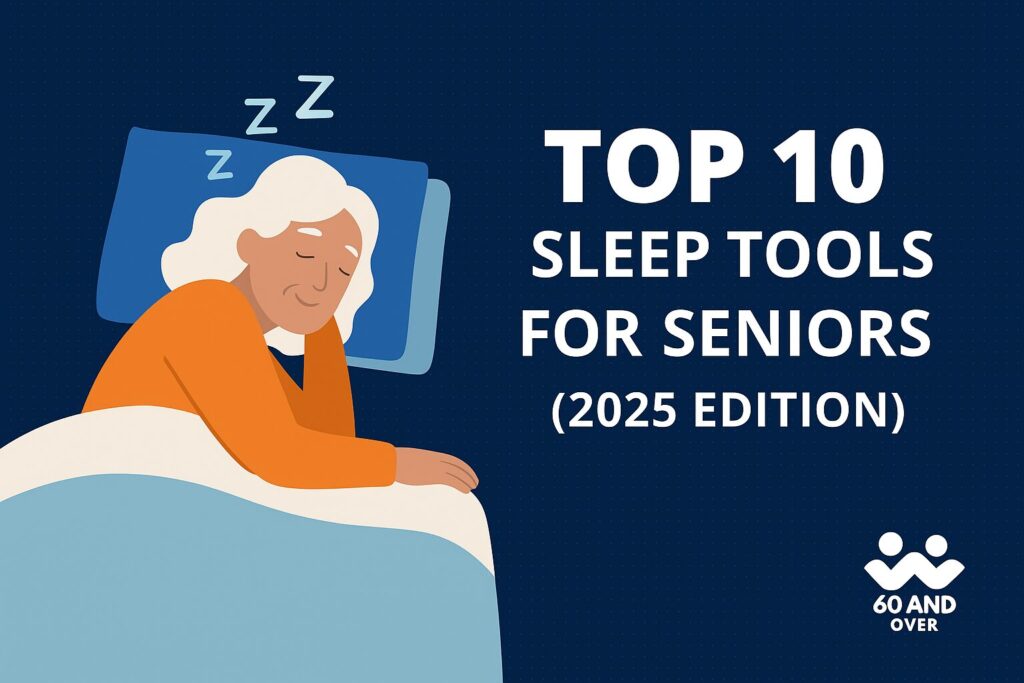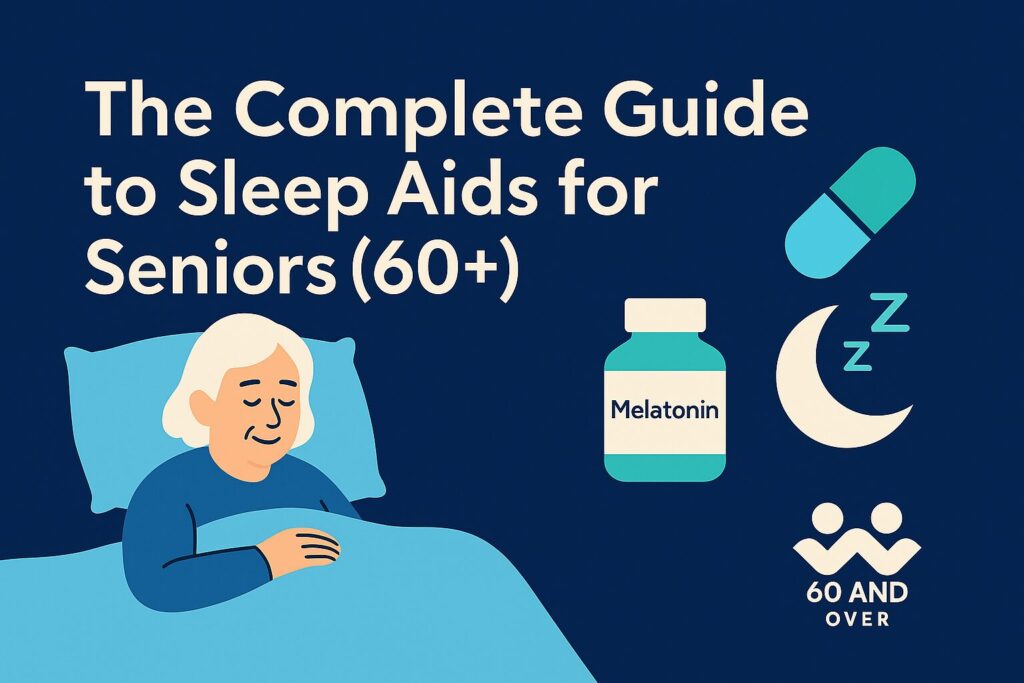Practical Relaxation Strategies for Seniors
For many seniors, sleepless nights are caused less by physical discomfort and more by a restless mind. Worries about health, family, finances, or the changes that come with aging often keep older adults awake long after the lights are out. Stress and anxiety are among the most common contributors to insomnia in seniors, but fortunately, they are also some of the most manageable.
By adopting simple relaxation strategies, creating healthy routines, and knowing when to seek extra support, seniors can break the stress-sleep cycle and enjoy more peaceful nights.
Why Stress Affects Sleep More After 60
As people grow older, they may face life transitions such as retirement, caregiving, or medical concerns. These challenges can raise stress levels, while natural changes in sleep architecture make the brain more vulnerable to disruption. Anxiety increases the production of stress hormones like cortisol, which keep the body alert and make it difficult to fall asleep. The result: racing thoughts, shallow rest, and frequent awakenings.
Daily Stress-Relief Habits for Seniors
Incorporating stress management into the daily routine can reduce nighttime anxiety.
- Gentle Exercise: Walking, yoga, and tai chi reduce tension and improve mood.
- Outdoor Time: Sunlight exposure helps regulate the circadian rhythm and provides a natural energy boost.
- Journaling: Writing down worries before bed can clear the mind and prevent rumination.
- Social Connection: Talking with friends or joining community activities helps relieve feelings of isolation that can fuel stress.
Relaxation Techniques for Bedtime
Evening routines should focus on calming both the body and the mind.
- Deep Breathing: Slow, rhythmic breathing lowers heart rate and signals the nervous system to relax.
- Progressive Muscle Relaxation: Tensing and releasing muscles from head to toe reduces physical tension.
- Mindfulness and Meditation: Focusing on the present moment reduces racing thoughts and helps create mental stillness.
- Soothing Sounds: Gentle music, white noise, or audiobooks can ease anxiety and support sleep onset.
Creating a Stress-Free Sleep Environment
The bedroom should be a sanctuary from worry. Seniors can benefit from:
- Keeping the space quiet, dark, and cool.
- Removing clutter that may subconsciously create stress.
- Reserving the bed for sleep and relaxation only — not for worrying or watching TV news late at night.
When to Limit Stimulation
Certain habits in the evening can make stress and anxiety worse. Seniors should consider:
- Avoiding late-night news or heavy discussions that spark worry.
- Reducing screen time before bed to prevent both overstimulation and melatonin suppression.
- Limiting caffeine and sugar after mid-afternoon, which can increase nervousness.
Professional Support for Anxiety and Sleep
Sometimes stress and anxiety are too overwhelming to manage alone. Seniors should seek medical advice if:
- Anxiety interferes with daily life.
- Sleep problems persist more than a few nights a week for weeks at a time.
- There are symptoms of depression, such as loss of interest or persistent sadness.
Counseling, cognitive behavioral therapy (CBT), or support groups can provide valuable tools. In some cases, healthcare providers may suggest safe, short-term treatments to reduce anxiety while healthier coping skills are developed.
Conclusion
Stress and anxiety may be common barriers to sleep after 60, but they are not insurmountable. Through daily relaxation practices, calming bedtime routines, and a supportive sleep environment, seniors can manage worry and restore more restful nights. By learning to quiet both the mind and body, older adults gain not just better sleep, but also improved overall well-being.
FAQ: Stress, Anxiety, and Sleep in Seniors
Q: Why do stress and anxiety affect senior sleep so strongly?
A: Natural changes in sleep quality after 60 make the brain more sensitive to disruption. Stress hormones like cortisol keep the body alert, leading to racing thoughts and insomnia.
Q: What are simple ways seniors can reduce stress before bed?
A: Deep breathing, journaling, mindfulness meditation, and progressive muscle relaxation are simple techniques that calm the mind and prepare the body for sleep.
Q: Can staying active help reduce anxiety at night?
A: Yes. Regular daytime exercise, outdoor activity, and social connection all lower stress levels and make it easier to fall asleep.
Q: Should seniors avoid news or TV before bed?
A: Yes. News, especially late at night, can trigger worry and increase anxiety, making it harder to relax and fall asleep.
Q: When should seniors seek professional help for anxiety-related sleep problems?
A: If sleep issues persist for weeks, or anxiety interferes with daily life, it’s important to consult a healthcare provider for evaluation and support.

